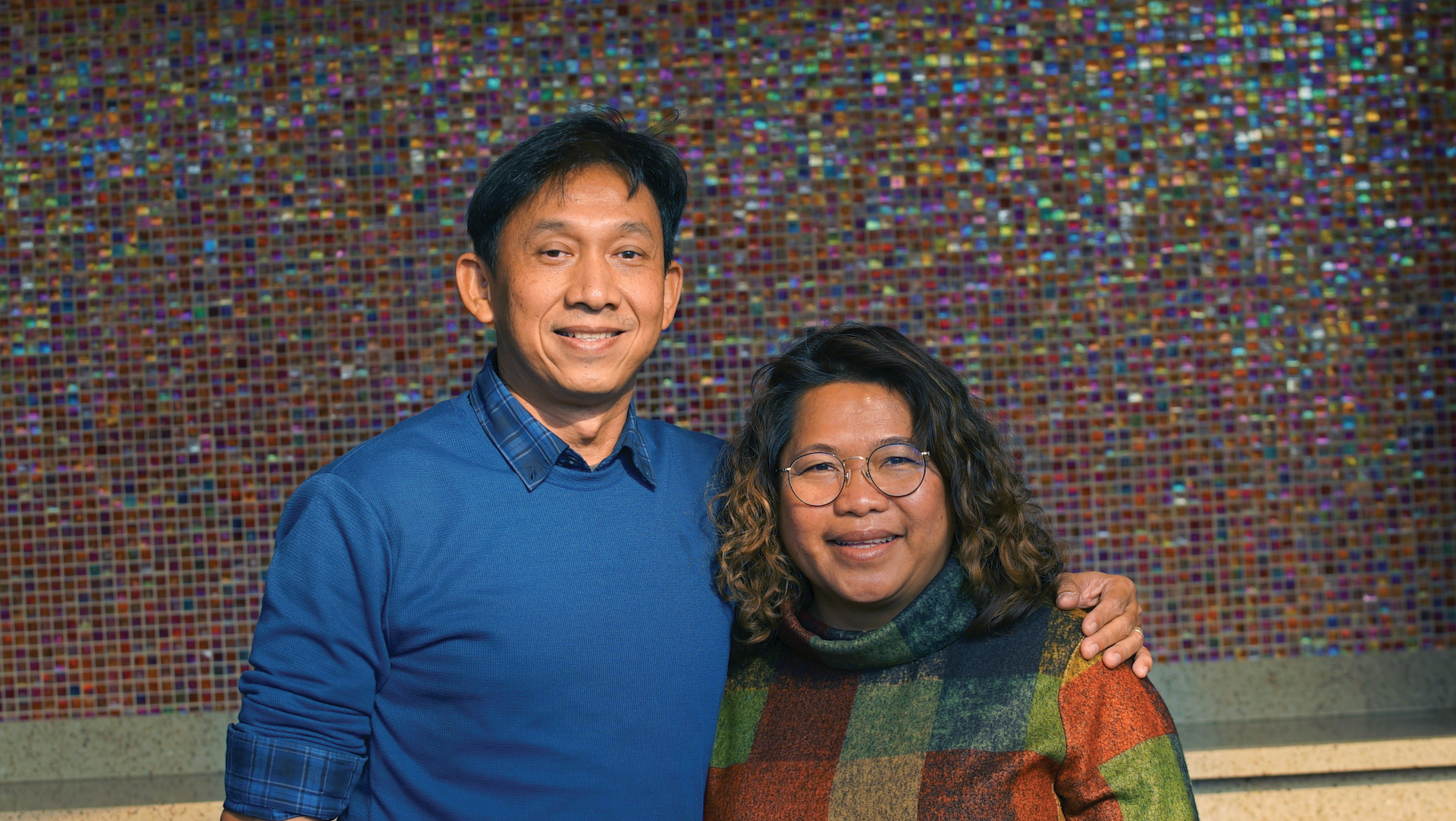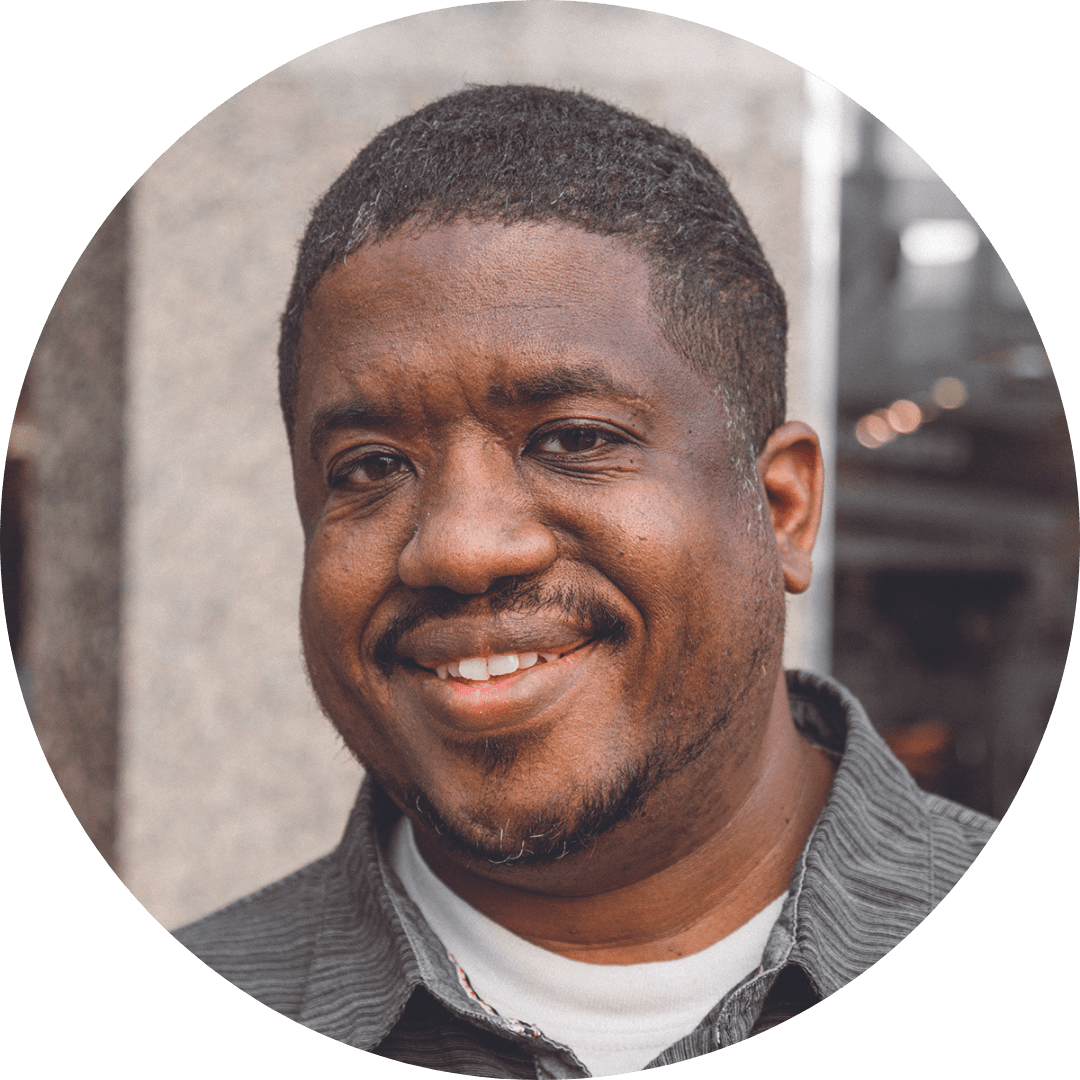The Companion chats with Covenant global personnel Tip and Patrick Boonrang, regional coordinators in Asia for the Serve Globally mission priority. In this role they provide support and care for global personnel and partners. They have participated in more than 60 medical mission trips and also work with differently abled people.
Can you tell us how you came to faith in Jesus?
Patrick: For both of us, our background is Buddhist since we were born. The first time I heard people talking about Jesus was my senior year at Chulalongkorn University in Bangkok. One of the students was from California, and he asked me, “Do you know Jesus Christ?” I told him, “I don’t know, maybe he studies engineering next door. Maybe you can find him there?” He just started laughing.
I was very deep into Buddhism, I was the president of the Buddhist club at my university. At one point I even decided to stop my studies and become a Buddhist monk. I thought if I could make myself pure and holy that I could go to heaven faster. During that break from school, I tried to keep the 227 laws of a monk. But after awhile I felt like something was wrong, because I was still the same me.
When I returned to my studies, this guy from California started sharing the gospel with me—that God loved me and Jesus died on a cross for me. That was really interesting to me. And I thought, Okay I have to learn more about that.
I started going to church, and I eventually met Tip. The pastor there started preaching about forgiveness. All my life I’ve had problems with forgiveness. I was the youngest child growing up, and my parents never apologized to me. So I grew up sort of strong, and when I did wrong, I could never say I was sorry. And I never knew how to forgive or be forgiven. So when the pastor talked about forgiveness, I started to cry.
The next week I went back, and when the pastor talked about it again, it was like a miracle. I felt like, This is what I need. This Jesus, maybe he’s the real God. So I prayed to receive Christ at that church. That was the beginning for me.
Eventually I got connected with Campus Crusade for Christ (now known as Cru), I was baptized and joined the staff there.
I left the university and stepped into serving God full-time.





Tip: My family grew up in northeastern Thailand in a poor, farming area. My dad was a construction worker, and we moved around a lot. When I was five, we moved to Bangkok, and my neighbor called me “Laos” all the time, because Laos borders Thailand, and [in that context] it’s kind of a derogatory term. Even though I was Thai, I was still segregated from others a lot.
So, to fit in with my friends, I would swear a lot, even though good Buddhists don’t swear. But I would lie and swear, just to fit in with the kids in my community. Once I stole something, and I was arrested, and that brought shame to my family. I was scared because the book of Buddha said I would drown in an ocean of vomit for 500 years to pay the penalty. I was only in fifth or sixth grade, and I couldn’t even swim yet.
At that point, the only thing I knew about Jesus was from when we studied world religions in school and the teacher told me Christianity was the poorest religion because they had no image of their God to worship—unlike Buddhists who had thousands of idols to worship. All Christians had was their imagination, I was told. That seemed uninteresting to me.
But I met a woman who was a doctor, and she started telling me that Jesus loved me, died for me, and that I could receive Christ and have a new life. She also told me that she grew up poor, just like I did. For two years, I kept coming back to her clinic. Her expression of faith really impressed me, and I thought, Wow, I want to be like her. She was my picture of Jesus.
When I first started going to church, I noticed that unlike the Buddhist people, who were really quiet when they went to temple, the Christians would sing and yell and clap their hands. As I learned more, I realized that having a relationship with God was a personal thing. That you could know God and God could know you personally. After a while, I accepted Christ because I wanted to know a real God like that.
How did you get connected with the Covenant?
Patrick: We met Bob and Grace Shim back in 2010 through some missions groups in Bangkok. Because Bob is a doctor, he’d brought some medical teams to Thailand, and they needed interpreters. Shortly before Bob stepped down from his position as regional coordinator to take a job with the State Department, he encouraged us to step into the role because of our experiences and knowing the culture well.
As people who are indigenous to the region, what does it mean to you to be regional coordinators?
Tip: At first, I wasn’t that confident. We’d been working here in Thailand for about 30 years, But when Bob mentioned “Serve Globally” I thought, I’m not sure if I can do that!
“Global” is a big word, right?
Tip: Yeah, and we have high standards when it comes to mission work, because we’ve seen a lot people doing an ineffective job at it. At first, I wanted to tell Bob no, because we’ve been involved in a lot of big organizations, and we fly here and there and have no time to really make disciples.
But the Covenant folks impressed me. They weren’t just coming to do a training and then going on vacation and writing reports. We started sitting in on Zoom meetings, learning about the mission priorities and hearing about what the Covenant is doing to help start and strengthen churches, and we got really excited about doing that, because so many churches in Asia are alone and need support.
One thing churches here in Asia have been trained to do is copy everything in Western churches. That’s why there have been missionaries here for 170 years already, but so many of them are ineffective. We both grew up knowing nothing about Jesus, so we want to help contextualize Jesus to our culture.














